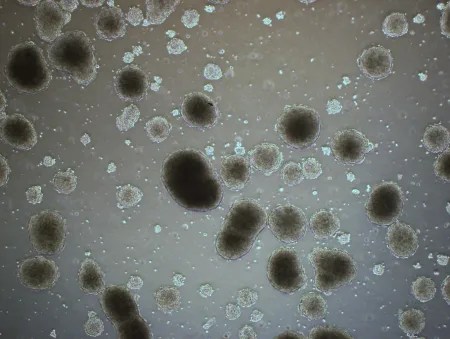Cell & Molecular Biology Program

Overview
Cell and molecular biology research cuts across all science disciplines in Space Biology, from understanding how single-celled organisms, such as protozoa, bacteria, and fungi respond to the conditions of spaceflight, to how all of the various cells in a complex tissue or organ work together to help an organism as a whole acclimate to such a foreign environment. The overarching goal of Space Biology Cell and Molecular Biology research at NASA is to determine how the stresses of the spaceflight environment affect living systems at the basic cellular and molecular levels, using contemporary cell and molecular biology techniques and measures. This includes characterizing and identifying changes in gene and protein expression, DNA function and structure, cellular structure and morphology, and cell-to-cell communication.
As we examine the impacts of spaceflight on the cell biology and physiology, we ask the following:
- What are the underlying genetic and molecular mechanisms of the cells that are influenced by gravitational changes and the space environment?
- Does the space flight environment affect or influence cell and molecular functions causing tissue/organ dysfunction or disease states?
- Does the space environment affect cellular and molecular functions in a manner that impact tissue morphogenesis or development?






























